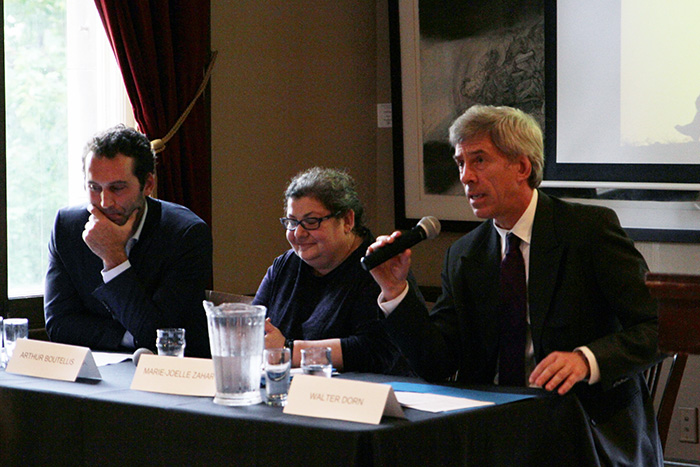On Oct. 21, the Centre for International Peace and Security Studies (CIPSS), a joint academic body of McGill and the Université de Montreal, hosted a conference titled, “New trends in United Nations Peacekeeping: Canadian and Global Perspectives” to discuss the future of Canadian peacekeeping. The talks primarily focused on how Prime Minister Justin Trudeau’s promise to re-engage in peacekeeping can be realized. Trudeau’s promise comes almost a decade since Canada last committed troops to a major peacekeeping mission. The speakers included academics, government officials, and representatives of various political organizations.
Canada’s Return to UN Peace Operations
The keynote speaker of the series was Roland Paris, a professor at the University of Ottawa and former senior advisor on Global Affairs and Defence to Prime Minister Justin Trudeau. Paris discussed why peacekeeping is resurfacing as a Canadian national interest and how it should be further developed.
According to Paris, Canadian peacekeeping operations decreased after several failures in the late 20th century–and Stephen Harper’s opposition–but the idea has remained in the public mind. He drew attention to a CTV poll last month in which 70 per cent of respondents were in favour of peacekeeping, even in combat situations.
“It’s stunning, the degree to which Canadians are attached to the idea of peacekeeping,” Paris said. “It appears to be integral to the ideas that Canadians have about their country’s role in the world.”
In addition to deploying peacekeepers, Paris stressed the importance of non-military aspects of peacekeeping.
“Canada is really in a position to promote the kinds of techniques and governance arrangements that can be used to manage diversity peacefully,” Paris said. “We are a bi-linguistic, multicultural federation that has and continues to manage internal conflict through these institutional structures.”
Paris emphasized that actors should identify in which areas they have comparative advantages in assistance. Canada excels at training local police forces and city planning.
“Canadian cities could be providing practices and expertise to municipal authorities in at-risk developing countries across a whole range of demands,” Paris said. “Cities, not national governments, are the principal service providers to most people. They’re where integration takes place.”
International Peacekeeping and Canada’s Role
Walter Dorn is a professor at the Royal Military College of Canada and at the Canadian Forces College. He argued for the necessity of peacekeepers in providing impartial resolutions to conflicts.
“Neighbours don’t make good peacekeepers, they make good war fighters and interveners,” Dorn said. “Even [Boutros Boutros-Ghali], when he was secretary-general, was not viewed in Somalia as the UN Secretary-General, but as the former minister of Foreign Affairs of Egypt and therefore […] as being partisan to the conflict.”
Dorn called upon the Canadian government to rapidly re-engage in peacekeeping operations for moral reasons in addition to tangible worries that foreign conflicts can breed internationally impactful diseases, terrorist groups, and refugee crises.
“Peacekeeping is actually part of prevention because you can prevent the areas where [peacekeepers are] deployed from becoming future Syrias,” Dorn said. “There is a humanitarian imperative that we respond to these conflicts. We can’t just live cozily in Canada and think that these problems won’t come to our own shores.”
There was general concern among the audience about Canada’s slow progress in peacekeeping. Stephane Bekhor, a conference attendee, expressed thoughts on the lack of incentive to participate in peacekeeping. Bekhor also criticized Canadian intervention in Colombia, stating that there are more dire crises overseas.
“As long as the image of Canada as a peacekeeper remains, there will be no pressure,” Bekhor said. “The other thing is economic interests. Canada certainly benefits from its relationship with U.S. trade connections, and by intervening in Colombia and disrupting the narcotics trade, they’re actually promoting their economic status directly across the border.”








